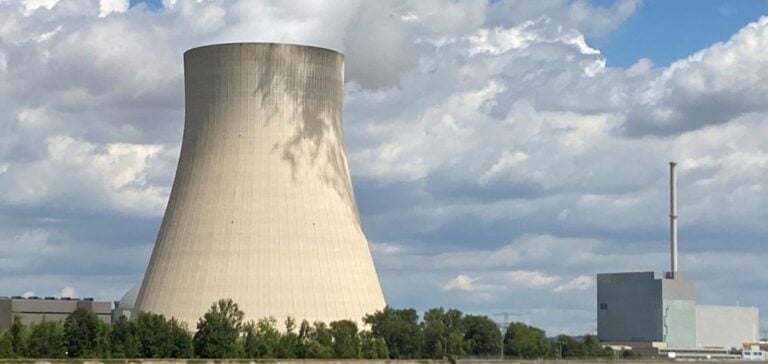Polska Grupa Energetyczna (PGE) is currently carrying out a preliminary analysis to determine the advisability of investing in nuclear power. This project follows the 2022 agreement with ZE PAK and Korea Hydro & Nuclear Power (KHNP) for the development of four 1,400-megawatt reactors in Pątnów, Central Poland, using South Korean technology.
Project background and development
PGE’s decision on nuclear investment will come after a full assessment of government policies regarding the national energy mix. The Pątnów project represents the second nuclear power plant planned for Poland, intended to complement the one being built by the American company Westinghouse Electric Co on the Baltic coast. However, this first plant is already experiencing delays. The new Polish government, in office since December, has promised to radically increase the share of clean energies in electricity production, currently dominated by coal. However, he has yet to detail his plans for the country’s future energy mix.
PGE Strategy and Outlook
Dariusz Marzec, CEO of PGE, said that the implementation of this crucial project must be integrated into the government’s overall strategy for the development and target model of the nuclear segment in Poland. Once this strategy has been defined and the analysis of the Pątnów project finalized, PGE will be able to determine whether it is preferable to continue investing in nuclear power or to focus on developing its offshore wind portfolio in the Baltic Sea, which exceeds 7 gigawatts. This cautious approach reflects the complexity and importance of long-term energy infrastructure decisions, especially in the context of the global energy transition to cleaner, more sustainable sources.
Issues and challenges
Poland, heavily dependent on coal, is facing domestic and international pressure to reduce its carbon emissions. The development of nuclear power could play a key role in this transition, offering a stable, low-carbon energy source. However, the challenges are many, particularly in terms of financing, technology, regulation and public acceptability. The Polish government must therefore carefully weigh up its options and align its decisions with its sustainable development objectives, while taking into account economic and social imperatives. PGE’s decision on investment in nuclear power will be crucial for Poland’s energy future. It will depend not only on technical and economic analyses, but also on the government’s strategic orientations in terms of energy transition. The results of these reflections will determine whether Poland can effectively diversify its energy mix while meeting contemporary environmental and economic challenges.





















